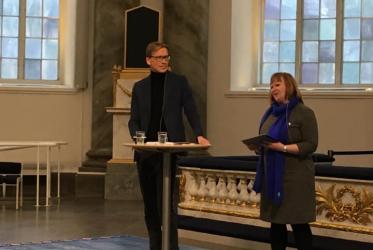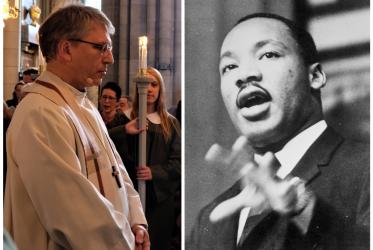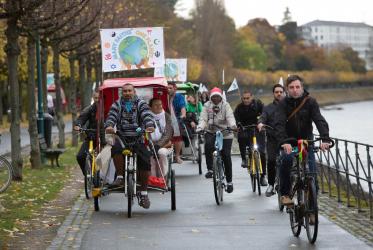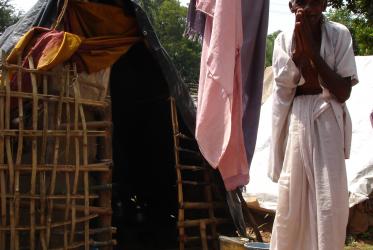Displaying 1 - 20 of 21
Ecumenism is a sense of belonging
08 February 2019
WCC Executive Committee envisions future for one ecumenical movement
08 November 2018
A vibrant movement ready for tomorrow’s challenges
04 November 2018
Unity, solidarity and hope at core of Ecumenical Weekend
04 November 2018
Looking back and ahead
31 October 2018
WCC and ACT Alliance Joint Day of Reflection on Ecumenical Diakonia and Sustainable Development
01 November 2018
Uppsala, Sweden
#WCC70: Nathan Söderblom, ecumenical pioneer
29 August 2018
Churches in France encourage ecological conversion
24 January 2018
#WCC70: Remembering Orissa
11 January 2018
Pilgrimage and youth
28 June 2016
Common prayer in Geneva responds to acts of violence
16 November 2015
WCC more united in the pilgrimage of justice and peace
13 November 2015
New departure in Taizé towards an ecumenism of solidarity
20 August 2015
Christians are called to be peacemakers and to build just peace
02 December 2014











